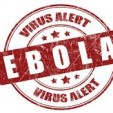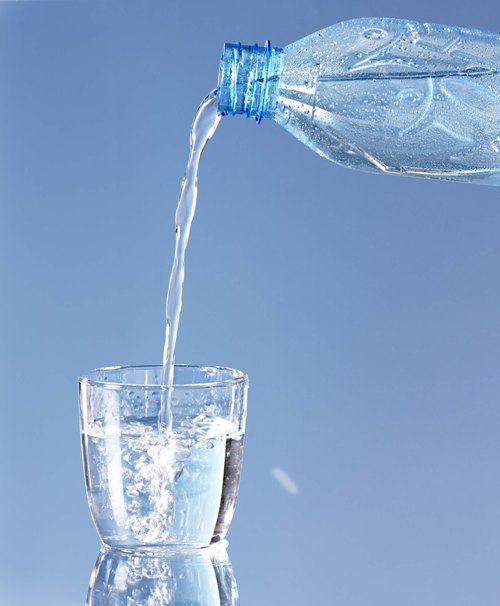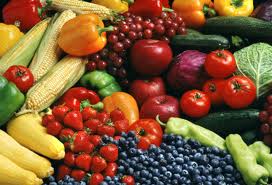Definition “Depression is a mood disorder that causes a persistent feeling of sadness and loss of interest. Also called major depression, major depressive disorder or clinical depression, it affects how you feel, think and behave and can lead to a variety of emotional and physical problems. You may have trouble doing normal day-to-day activities, and depression may make you feel as if life isn’t worth living. More than just a bout of the blues, depression isn’t a weakness, nor is it something that you can simply “snap out” of. Depression may require long-term treatment. But don’t get discouraged. Most people with depression feel better with medication, psychological counseling or both. Other treatments also may help.”[Mayo Clinic] Depression: What Is It? “It’s natural to feel down sometimes, but if that low mood lingers day after day, it could signal depression. Major depression is an episode of sadness or apathy along with other symptoms that lasts at least two consecutive weeks and is severe enough to interrupt daily activities. Depression is not a sign of weakness or a negative personality. It is a major public health problem and a treatable medical condition. Depression: Who’s at Risk? Anyone can become depressed, but many experts believe genetics play a role. Having a parent or sibling with depression increases your risk of developing the disorder. Women are twice as likely as men to become depressed.” [Web MD] Depression Symptoms in Children and Teens “Common symptoms of depression in children and teens are similar to those of adults, but there can be some differences. •In younger children, symptoms of depression may include sadness, irritability, clinginess, worry, aches and pains, refusing to go to school, or being underweight. •In teens, symptoms may include sadness, irritability, feeling negative and worthless, anger, poor performance or poor attendance at school, feeling misunderstood and extremely sensitive, using drugs or alcohol, eating or sleeping too much, self-harm, loss of interest in normal activities, and avoidance of social interaction. •Depression may occur with other mental health conditions, such as anxiety, eating disorders, substance abuse or attention-deficit/hyperactivity disorder (ADHD..” [Mayo Clinic] Depression Symptoms in older adults Depression is not a normal part of growing older and it should never be taken lightly. Unfortunately, depression often goes undiagnosed and untreated in older adults, and they may feel reluctant to seek help. Symptoms of depression may be different or less obvious in older adults, including: •Memory difficulties or personality changes •Fatigue, loss of appetite, sleep problems, aches or loss of interest in sex, which are not caused by a medical condition or medication •Often wanting to stay at home, rather than going out to socialize or doing new things •Suicidal thinking or feelings, especially in older...
Health Tips
Ebola Outbreak in Guinea, Liberia, and Sierra Leone About Ebola Hemorrhagic Fever Ebola hemorrhagic fever (Ebola HF) is one of numerous Viral Hemorrhagic Fevers. It is a severe, often fatal disease in humans and nonhuman primates (such as monkeys, gorillas, and chimpanzees). Ebola HF is caused by infection with a virus of the family Filoviridae, genus Ebolavirus. When infection occurs, symptoms usually begin abruptly. The first Ebolavirus species was discovered in 1976 in what is now the Democratic Republic of the Congo near the Ebola River. Since then, outbreaks have appeared sporadically. There are five identified subspecies of Ebolavirus. Four of the five have caused disease in humans: Ebola virus (Zaire ebolavirus); Sudan virus (Sudan ebolavirus); Taï Forest virus (Taï Forest ebolavirus, formerly Côte d’Ivoire ebolavirus); and Bundibugyo virus (Bundibugyo ebolavirus). The fifth, Reston virus (Reston ebolavirus), has caused disease in nonhuman primates, but not in humans. The natural reservoir host of ebolaviruses remains unknown. However, on the basis of available evidence and the nature of similar viruses, researchers believe that the virus is zoonotic (animal-borne) with bats being the most likely reservoir. Four of the five subtypes occur in an animal host native to Africa. A host of similar species is probably associated with Reston virus, which was isolated from infected cynomolgous monkeys imported to the United States and Italy from the Philippines. Several workers in the Philippines and in US holding facility outbreaks became infected with the virus, but did not become ill. Transmission Transmission Because the natural reservoir of ebolaviruses has not yet been proven, the manner in which the virus first appears in a human at the start of an outbreak is unknown. However, researchers have hypothesized that the first patient becomes infected through contact with an infected animal. When an infection does occur in humans, there are several ways in which the virus can be transmitted to others. These include: direct contact with the blood or secretions of an infected person exposure to objects (such as needles) that have been contaminated with infected secretions The viruses that cause Ebola HF are often spread through families and friends because they come in close contact with infectious secretions when caring for ill persons. During outbreaks of Ebola HF, the disease can spread quickly within health care settings (such as a clinic or hospital). Exposure to ebolaviruses can occur in health care settings where hospital staff are not wearing appropriate protective equipment, such as masks, gowns, and gloves. Proper cleaning and disposal of instruments, such as needles and syringes, is also important. If instruments are not disposable, they must be sterilized before being used again. Without adequate sterilization of the instruments, virus transmission can continue and amplify...
Food for Thought Water Jesus answered and said unto her, Whosoever drinketh of this water shall thirst again: but whosoever drinketh of the water that I shall give him shall never thirst; but the water that I shall give him shall be in him a well of water springing up into everlasting life. [John 4:13, 14] In health and in sickness pure water is one of Heaven’s choicest blessings. Its proper use promotes health. It is the beverage which God provided to quench the thirst of animals and man. Drunk freely, it helps to supply the necessities of the system and assists nature to resist disease. The external application of water is one of the easiest and most satisfactory ways of regulating the circulation of the blood. Pure water to drink and fresh air to breathe invigorate the vital organs, purify the blood, and help nature in her task of overcoming the bad conditions of the system. Water is the best liquid possible to cleanse the tissues. If those who are afflicted would assist nature in her efforts by the use of pure, soft water, much suffering would be prevented. Water treatments, wisely and skillfully given, may be the means of saving many lives. Let diligent study be united with careful treatments. Let prayers of faith be offered by the bedside of the sick. Let the sick be encouraged to claim the promises of God for themselves. The refreshing water, welling up in a parched and barren land, causing the desert place to blossom and flowing out to give life to the perishing, is an emblem of the divine grace which Christ alone can bestow, and which is as the living water, purifying, refreshing, and invigorating the soul. * * * * * In the East water was called the “gift of God.” From My Life Today – Page 144 by Ellen G....
Sunlight Truly the light is sweet, and a pleasant thing it is for the eyes to behold the sun. Eccl. 11:7 There are but few who realize that, in order to enjoy health and cheerfulness, they must have an abundance of sunlight, pure air, and physical exercise. We pity little children who are kept confined indoors when the sun is shining gloriously without. Clothe your boys and girls comfortably and properly. . . . Then let them go out and exercise in the open air, and live to enjoy health and happiness. The pale and sickly grain-blade that has struggled up out of the cold of early spring puts out the natural and healthy deep green after enjoying for a few days the health-and-life-giving rays of the sun. Go out into the light and warmth of the glorious sun, . . . and share with vegetation its life-giving, healing power. No room in the house should be considered furnished and adorned without the cheering, enlivening light and sunshine, which are Heaven’s own free gift to man. . . . When God had made our world, and darkness was upon the face of the deep, he said, Let there be light, and there was light. And God saw the light that it was good. Shall we close our houses, and exclude from them the light which God has pronounced good? If you would have your homes sweet and inviting, make them bright with air and sunshine. . . . The precious sunlight may fade your carpets, but it will give a healthful color to the cheeks of your children. If you have God’s presence, and possess earnest, loving hearts, a humble home, made bright with air and sunlight . . . will be to your family . . . a heaven below. Exercise and a free abundant use of the air and sunlight–blessings which Heaven has freely bestowed upon all–would give life and strength. From My Life Today p. 143 by Ellen G....
Antioxidants and Aging Eat foods rich in antioxidants to help fight free radicals — unstable oxygen molecules that contribute to the aging process. Antioxidants can be found in colorful vegetables and fruits like berries, beets, and tomatoes. For a balanced diet and to help you reduce your risk of developing cancer and heart disease, add at least five to nine servings of fruits and vegetables to your diet each day. WebMD . The Value of Eating Vegetables Vegetables contain fiber, phytonutrients /phytochemicals, and lots of vitamins and minerals that may protect you from chronic diseases. Dark green leafy vegetables contain vitamin K for strong bones. Sweet potatoes and carrots contain vitamin A, which helps to keep eyes and skin healthy and protects against infection. Study show men eating 10 or more servings of tomato products per week, saw a 35% decrease in their risk of prostate cancer.[a] References:[a]. Giovannucci E: A review of epidemiologic studies of tomatoes, lycopene, and prostate cancer. Exp Biol Med (Maywood)2002;227:852-859.;...





